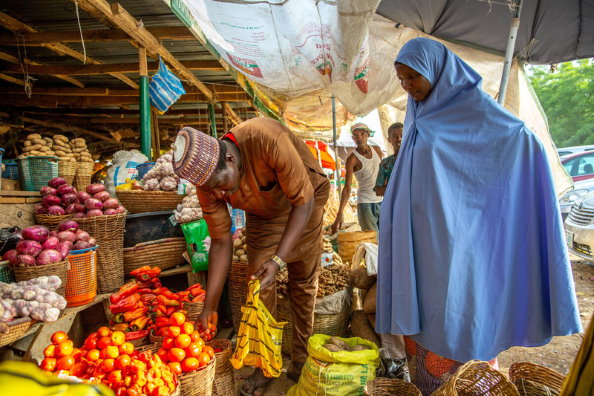By Ikenna Nzewi
According to the United Nations (UN), more than half of global population growth over the next three decades will be in Africa. This means more mouths to feed and more jobs to be created to avoid further unemployment.
I believe this is a clarion call to build efficient food systems to secure prosperity. Our farmers are the backbone of our food system. In and out of season, they are constantly working on their farms to get the best harvest they can. Unfortunately, despite producing 400 times more food than we did in the 1950s, the demand for food still outweighs supply.
- Maulud: CAN felicitates with Muslims, urges FG to end insecurity
- Insecurity declining, not rising, Buhari tells media
The absence of effective tools that will make their ventures more profitable means many farmers spend their time doing back-breaking work with little returns. In the palm oil sector, for example, many farmers still use rocks to de-shell palmnuts by hand. This drudgerous process also means they are less likely to produce factory-grade nuts, and the nuts they do produce are either sold cheaply or go to waste.
On the flipside, 90 per cent of factories are running at below 50 per cent of their installed capacities due to scarcity of quality raw materials and the capital to purchase them. This combination of issues is just a glimpse of the challenges facing our food production industry, but it also points to how we can make the progress we need.
Case for industrialisation
Industrialisation can make a transformational difference. In this 21st Century farmers should not rely on handheld rocks to process food. Our burgeoning technology sector has shown that Africans are just as capable of developing effective solutions to our own problems. Innovation can be channeled towards developing technology that will consolidate our food systems and position farmers for long-term prosperity.
Another incentive for industrialisation is that it has moved more people out of poverty in less time than any other phenomenon in the history of the world. Globally, industrialisation has provided the most direct route to long-lasting and broad-based shared prosperity.
Building on existing systems
Recently, the African Green Revolution Forum (AGRF) and the Government of Kenya hosted AGRF 2021 – Africa’s largest agriculture conference – organised with the theme: “Pathways to Recovery and Resilient Food Systems”. As chief executive of Releaf, I welcome a platform such as AGRF, which draws African governments, the private and development leaders to explore new ways to improve food systems and support for increased participation of youths in agriculture.
We also have to make sure we are building on systems that are already in place. In the early days of Releaf, my fellow cofounders and I travelled to 20 states across Nigeria by road to understand how the value chain works. We went from farm to market and everywhere inbetween and it was only after this exploration that we were able to identify a real pain point that we felt we could address.
It would have been easy to try to re-engineer the system, but history tells us that this approach does not work. Whatever modernisation or industrialisation that will happen must happen in a truly African context. There is no need to reinvent the wheel.
Harnessing young people’s energy
I was privileged to participate in and be one of the winners of the African Development Bank’s (AfDB) AgriPitch competition – an annual event that aims to encourage a culture of innovation and nurturing for technology-led agribusiness innovations to create jobs and improve youths’ livelihoods.
The competition reminded me of the potentials that abound among Africa’s young people and our desire to develop solutions to the challenges that face the continent. Africa has the largest share of young people in the world, with 75 per cent of the continent’s population below the age of 35. About 65 per cent of youths in Africa live in rural areas and are employed primarily in the agriculture sector.
When you combine these facts with the reality that young people are typically more open to new ideas and innovations, we just may be looking at what the continent needs to achieve the transformation it needs.
As we prepare for the exponential growth in our population, we need to address the challenges that have been holding our farmers back and put structures in place that will ensure prosperity. Whatever we do to address farmers’ challenges will not only address issues from the past, but it will also position the continent for the long-term prosperity we all desire.
Source: Mail&Guardian

 Join Daily Trust WhatsApp Community For Quick Access To News and Happenings Around You.
Join Daily Trust WhatsApp Community For Quick Access To News and Happenings Around You.



